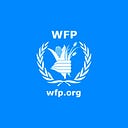A bank by your porch
Village savings and loan groups help build small business in rural Malawi
Katherine McAleer
In Chimbalanga, a small village in Malawi’s district of Zomba, a group of excited people from one of the local village savings and loan groups (VSLs), gather for their weekly bank n’khonde (bank by the porch) to discuss and decide on the financial transactions of the coming week. As is the case with many people in rural Malawi, these locals have very limited to no access to formal financial services, such as banks or microfinance institutions. Instead, they collectively support each other with saving money and offering loans within the VSL.
Across small rural communities in Malawi, VSLs help increase smallholder farmers’ ability to purchase food, agricultural inputs, invest in income-generating activities, cover the cost of education and health-related expenses.
In 2018, Margaret Laudon, a wife and mother of two, started participating in the UN World Food Programme (WFP) Food Assistance for Assets (FFA) initiative where in return for helping to build community assets she received US$20 (MK 14,000) per month to address her immediate food needs. As part of WFP’s integrated approach to resilience, FFA participants have the option of joining other activities within the broader resilience portfolio, such as VSLs. This is the case for Margaret who that same year joined the VSL group after learning from other members in the community on how the initiative changed their lives for the better.
“The cash I received from helping to build assets under FFA eased the burden of sourcing food for my family,” says Margaret. “I managed to feed my family, pay for my children’s education and invested my savings in the VSL.”
Recently, Margaret used part of her savings to purchase a water pump to help irrigate her small farm. As a source of additional income, she rents out her pump to other small holder farmers in her community.
In many cases, FFA is linked with the broader integrated resilience portfolio that offer participants the opportunity to engage in activities such as participatory climate services for agriculture, village savings and loans, and smallholder farmer agricultural market support.
Alinafe Magwela, a wife and mother of three, also recounts how the VSL helped her open a small business and purchase a bike. “My husband managed to improve his fish selling business because he is now able to ride the bike to lake Malawi to purchase dry fish,” explains Alinafe. “The last loan I took from the VSL helped me buy seeds for irrigation farming and I intend to pay the loan back from selling the surplus produce.”
The VSL has empowered Alinafe and helped her improve her sense of self-worth. “Before joining the VSL, I had nothing, but now my life and even my appearance has changed because I am proud of what I have achieved.”
Promise Kamwendo participates in a Village Savings and Loan (VSL) group and has used this opportunity to secure small loans from selling goats and investing in the VSL to purchase seeds and fertilizer for her land. At the end of each year, she receives a pay-out from the group’s interests, which has allowed her to install a cement floor and iron roof on her house. She’s also opened a shop where people can buy their essential items and fresh vegetables.
“I have been able to use the income from the sale of goats and from the shop to pay school fees for my children,” says Promise with a smile.
Village Savings and Loans Groups are a popular model because they are community-based and any interest paid on loans goes back into the community. This model is simple, it is easy to understand and allows engagement with anyone regardless of their academic background. While women form most of the current VSL groups, men have also been increasingly joining.
Seen through the lens of the Sustainable Development Goals (SDGs), FFA is a powerful tool in efforts to achieve Goal 2: Zero Hunger. FFA restores degraded landscapes, expands the availability and diversity of food produced and consumed locally, and ensures that local food production and income-generating activities can continue through shocks and crises. Partner governments can also benefit from an improved capacity for food security and nutrition policies, strategies and programmes.
WFP Malawi’s livelihoods programme, is possible thanks to the generous support of its development partners (USA, United Kingdom, Germany, Flanders and Switzerland.In Malawi WFP focuses its resilience-building activities in eight priority districts (Balaka, Blantyre, Chikwawa, Machinga, Mangochi, Phalombe, Nsanje and Zomba).
Read more about WFP’s work in Malawi
